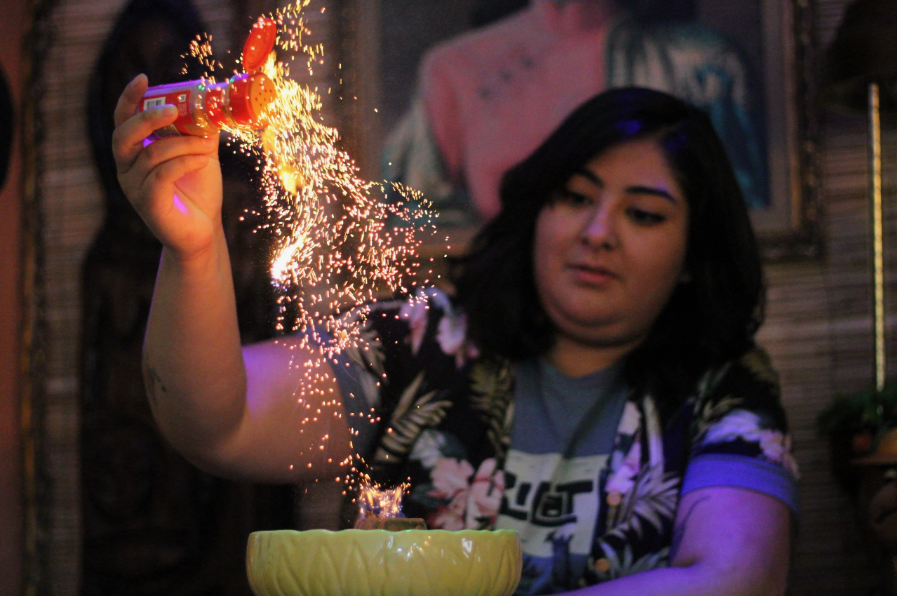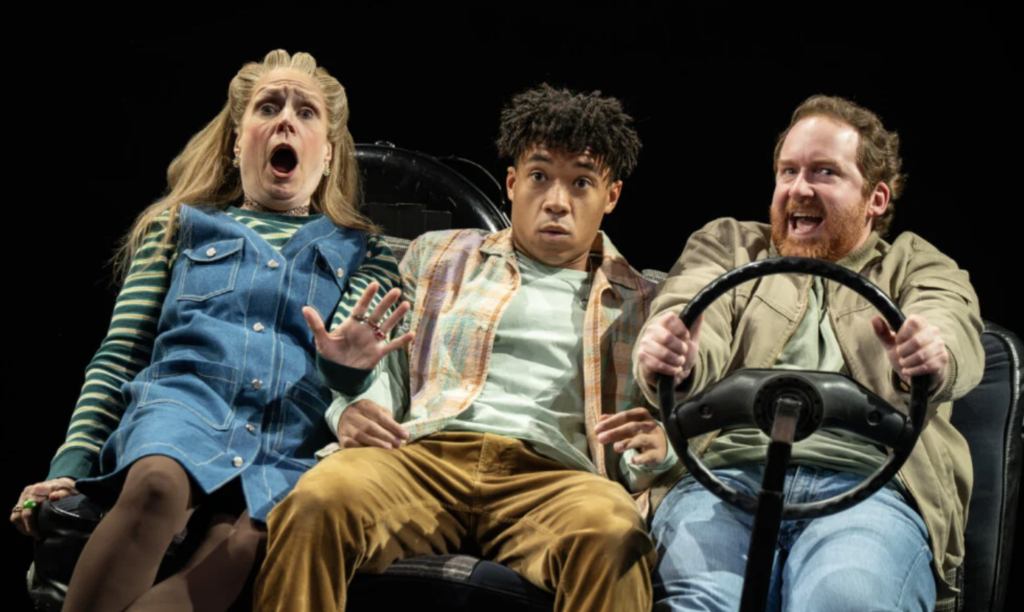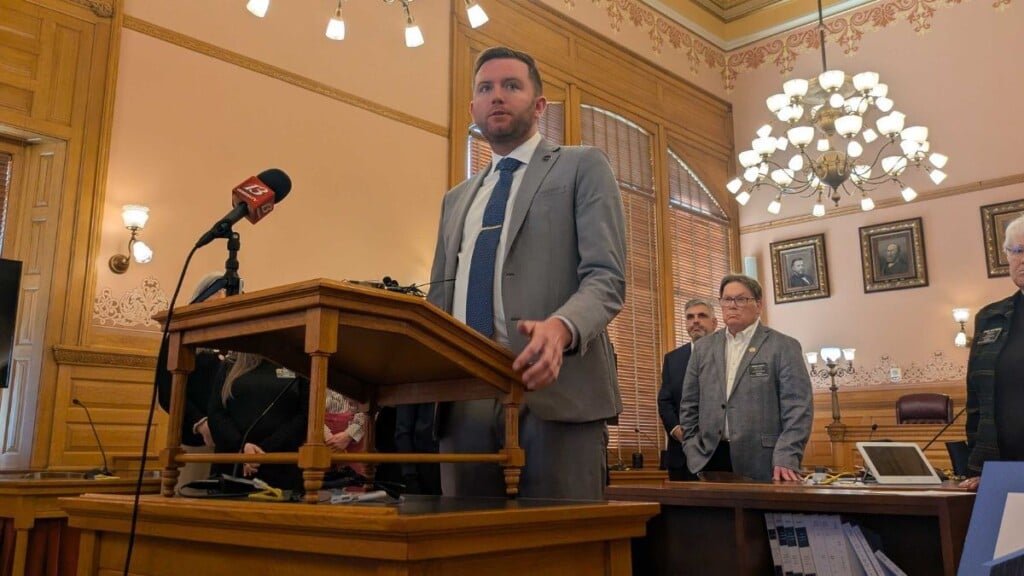Legendary producer and Garbage member Butch Vig talks Strange Little Birds and his approach to work
Because the beautiful and magnetic Shirley Manson is at the center of Garbage’s universe, it can sometimes be easy to forget that the rest of the band is stacked with talent. Butch Vig, drummer and multi-instrumentalist for the band, also boasts an extensive producing career that includes touchstone recordings such as Nirvana’s Nevermind and Smashing Pumpkins’ Siamese Dream, among scores of other albums. It’s not overreaching to say he has shaped some of the most influential music of a generation, and he continues to work steadily with fellow-legend friends Dave Grohl and the Foo Fighters.
Ahead of Garbage’s Sunday, July 10, performance at the Uptown Theater, The Pitch phoned Vig to talk about Garbage’s new album, Strange Little Birds, his approach to work and how he’s seen the industry evolve.
The Pitch: What is your setup like now? Do you have a home studio or an official setup somewhere else?
Vig: I have a home studio, which was built into one of the bedrooms here in my house in Silver Lake in Los Angeles. It’s not really soundproofed — I have a small drum kit in there and a piano, some guitars, a small board. That’s where we wrote the bulk of Strange Little Birds and recorded it. It’s very low key. We’re just kind of hanging out, sipping on some wine and following whatever muse comes upon us and seeing where songs go. It’s good because there’s no pressure when it’s just us doing it here.
You took your time putting this record together.
Yeah, we spent on and off almost two years. We’d get together for two weeks and write and record, and then we’d take two or three weeks off. Everyone would go out and do their own thing. I worked on a documentary about my studio with Steve [Marker, about Smart Studios, where Nirvana’s Nevermind and many thousands of other albums were recorded], Duke [Erikson] is working on a documentary, and Shirley was acting. We’d get together to write and record, and then we’d get our own personal space back. I think that was one of the reasons that we were able to be creative, because when we got together to work on Garbage, we got to really focus on it. It didn’t go on and on into one endless recording session. It’s good to work in bits and pieces.
Obviously the band has been together for quite a while now. Do you think that having your own space is important to keep the band feeling fresh?
Yeah, I think so. We really looked at Strange Little Birds the way that we looked at our first record. We wanted to experiment and kind of keep it loose, to not think that anything was too regimented. The process — at least to me, vibewise — felt like our first record. It was very experimental — we had no idea what we were doing when we made our debut record.
I think part of why we were able to get into that headspace on Strange Little Birds is that we’re on our own label. We don’t really have any expectations from a major label, or anyone other than ourselves, and that allowed us to try different things, like switching up instrumentation, or taking some of the rock out of songs to add more cinematic sounds. Shirley recorded some of the vocals quite spontaneously, with a minimal number of takes. Some of the songs, in particular, “Even Though Our Love Is Doomed,” she sang it in one take — that’s what you hear on the record. I don’t know if we would have done that in the past. We would have fussed over it more.
You said that you didn’t know what you were doing when you recorded your first record. You were coming off of recording these massive albums for Smashing Pumpkins and Nirvana. How did that feel to try something completely different?
Well, by the time that I did Nirvana and Smashing Pumpkins and they had that big critical and commercial success, I’d probably done a thousand punk-rock records at Smart Studios. I was getting tired of a lot of guitar-bass-drums, set up in a room and recorded live. I grew up listening to all different styles of music, went to film school and recorded a lot of electronic music and learned how to write and compose on synthesizers. I felt like I was being pigeonholed a little bit.
The reason we started Garbage was to use the studio as a writing tool. Steve and I bought some samplers, especially after hearing Public Enemy. The first couple of records they made just sounded crazy and wild. It was fun and interesting because it gave us a new perspective on how to record and create a song and what you could do.
Our 20th anniversary for the debut record was last fall. We went back and remastered the album for a deluxe reissue last year, and I have to say that it sounds quite unusual. It has a thing, you know? At the time it stuck out from the alternative bands that I’d been producing.
What would you have done differently on those early records?
In some ways I wish that we had started Stun Volume and then just released on Stun Volume and licensed to major labels. Then we would have owned our masters. We’ve reverted the masters that we had on those first couple of records that went to Mushroom and Warner Bros. and BMG in Europe. We got all of those back — but the one over here, the initial deal with Almo, they still own our masters. So anytime we want to do anything on those first four records, it’s quite complicated. There’s a lot of decisions to make, a lot of attorneys or whatever.
Our last two records are on Stun Volume, and we can do whatever with those that we want. I try to tell young bands and young artists now to maintain 100 percent ownership of the music they create. Because you want to be able to control it. You never know what’s going to happen. You might find that later down the line you want to use it but you can’t, because somebody else owns it. I always tell them to be careful about what kind of deals they sign. Now we’re completely autonomous, which is great.
Is there anything that you like about the industry now that you wouldn’t have been able to access 20 years ago?
Well, it’s so easy now to record. People can record on laptops in their bedrooms and make it sound amazing. You can write a song on a Sunday night, and if it’s good you can go viral and a million people can hear it in 24 hours. That would not have happened 20 years ago. It’s leveled the playing field — it used to be that record labels were the gatekeepers, and they made all of the decisions about what the public could hear. There’s so much music now, and so much of it is truly, truly independent. I think that’s a good thing.
The only drawbacks is that we are just inundated with music, and a lot of it is truly mediocre. You have to wade through and listen to a lot of stuff before you find something you fall in love with. But it’s out there.
In your approach to work, are you trying to create something different, or do you just trust your instincts?
I look at producing someone else and being in Garbage in a different way. If I’m producing Foo Fighters or Green Day, I have to remember that it’s their vision and to understand what that is, and how to get them there. You try to encourage good performances, and make sure that the records sound good.
With Garbage, it’s a different thing. I’m a writer, I’m a producer, I’m an engineer. I play drums and guitar and bass, and so the creativity and songs are coming from me. I find that very liberating because it’s a truly unique band to be in in that all four of us do all of those things that I touched on. A lot of bands have very delegated roles, the drummer is the drummer, the bass player is the bass player. In Garbage all four of us share multiple roles, and I think that’s one reason we’re still here after 20 years. It’s really interesting and challenging and it’s an artistic palette that we can keep coming back to and is always available to us.
What are you most proud of on this new record?
To me, one of my favorites is “Even Though I Know Our Love Is Doomed.” It’s right at the heart of the record. That track started out as a title that I came up with. I told Shirley that I had it and another piece of the chorus. She said, “I love it, I love it.” I worked on some demos that weren’t sounding very good, and I never did take them in to Shirley. She asked a couple of months later about whatever had happened to that song, and I told her I didn’t like the demos. She said, “Why don’t you bring in just a really simple demo of what you hear in your head, and we’ll check it out.”
I kind of panicked. I woke up the next morning and I didn’t know what to do, but I picked up a bass guitar. I wrote the main riff of the song, and I wrote all of the lyrics in about five minutes. I took it in and Shirley heard it. I think I mentioned this, but she sang it once and she was done. In the course of about 24 hours, we were done with the song. We added some guitars and other instrumentation at the end where it gets really big, but it just happened really quick. I love it when that happens to a Garbage song, because it’s rare. Most of our songs I fuss over. It’s like throwing paint at a wall. We keep adding textures and trying to get things to balance.
How will the live performances of the new songs compare with recorded versions?
Live versions for us will always be different than recorded versions. I think that we realized that with the first album. When that album came out we were obsessed with trying to make the live performances sound like the recording. You realize when you go onstage that it’s kind of a free-for-all, and you can’t really control it. It’s part of why live shows are exciting. They’ll all be different. People just want to hear the core of the song, and to hear Shirley singing.
Garbage
Uptown Theater
Sunday, July 10




